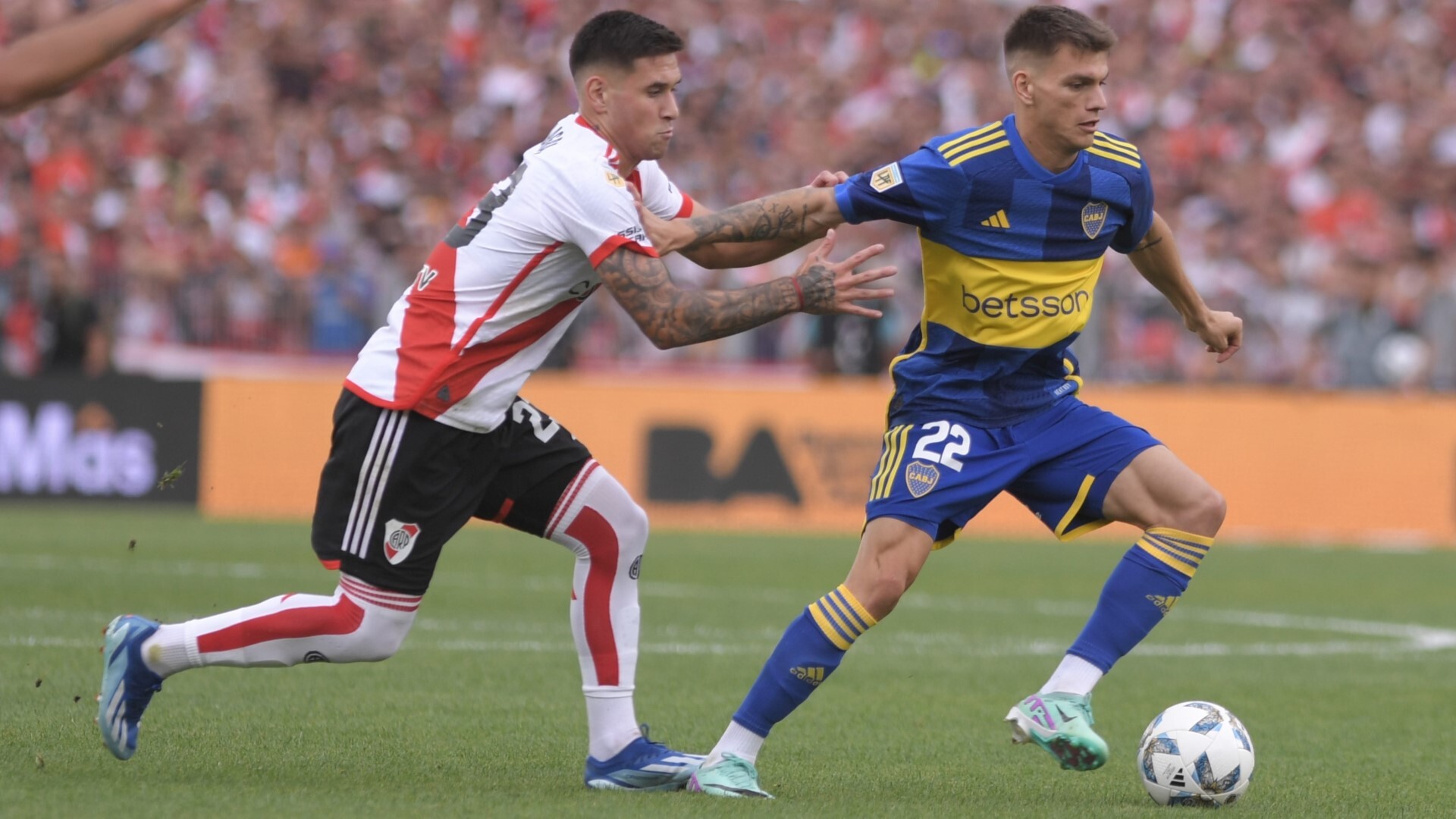
The 2025 FIFA Club World Cup had its draw Wednesday and now Argentine football giants Boca Juniors and River Plate know who their rivals will be. The tournament, set to run from June 15 to July 13 in the U.S., will be the debut for the new four-yearly, 32-team format that was announced in 2019 to replace the prior yearly competition.
The event was held in Miami, where four pots of eight teams, ranked via performance in qualifying events, were sorted into eight four-team groups. This is how the tournament will play out.
The Millionario’s performances in the Copa Libertadores earned them a place in the top-seeded team pot, alongside top European sides like Manchester City and Real Madrid and Brazil’s trio of Flamengo, Palmeiras and Fluminense. This meant Marcelo Gallardo’s team avoided some of the tougher rivals in the running.
As the top seeded team in group E, River will face Italy’s Inter Milan, Mexico’s Monterrey, and Japan’s Urawa Red Diamonds.
Inter is without a doubt the most difficult matchup for the Millionario. The team led by 2024 Copa América top goalscorer Lautaro Martínez is the Serie A reigning champion, while it sits third in the 2024-25 league and second in the Champions League so far.
Japanese outfit Urawa Red Diamonds was one of the J-League’s 10 founding members. Qualified to the CWC as AFC Champions League winners in 2022, they’re currently sitting 12th in the league.
However, the highest stakes for River fans and players alike may come when they face Monterrey. The Rayados are coached by former River boss Martín Demichelis, who stepped down in July after a run of bad results. Out of all competitions in 2024, successor — and predecessor — Gallardo will be keen to show the club they were right to pull the plug.
The Xeneize wasn’t as lucky. Having fallen to pot three, the team led by Fernando Gago was bound to face some top notch competition. A member of group C, it will face German giants Bayern Munich, Portugal’s Benfica, and Auckland City from New Zealand.
The clash with Benfica’s As Águias could prove the tipping point for Boca and the group. Assuming both win their against Auckland and lose to Bayern, a result against Benfica could be all Boca needs to move on to the next stage.
Currently third in the Portuguese league, the Lisbon side has historical links with Argentine football — Javier Saviola, Pablo Aimar, and Enzo Pérez among others list as former players — and currently has Qatar 2022-winners Ángel Di María and Nicolás Otamendi in its squad.
OFC Champions League winners in 2022, ‘23, and ‘24, Auckland City is the sole representative of the Oceania Football Confederation. It won bronze at the 2014 Club World Cup, beating Mexico’s Cruz Azul.
For Boca fans, the biggest game will undoubtedly be that against Bayern Munich. The two sides have history: they met in the 2001 Intercontinental Cup, with the German giants winning 1-0 in extra time.
The goal came in highly controversial fashion. Danish referee Kim Nielsen allowed play to continue following a foul on Boca’s Clemente Rodriguez, with Samuel Kuffour’s winner coming from that play. Former player and current Boca board member Mauricio Serna called it “the robbing of the century,” so fans will be eager to set the record straight.
Lionel Messi and the Herons are set to take part as well. Inter Miami will share group A with Brazil’s Palmeiras, Portugal’s Porto, and Egypt’s Al-Ahly. Their match against the latter will be the tournament’s opener at Miami’s Hard Rock Stadium.
“It’s a difficult group that presents challenges but I am very hopeful to compete,” said co-owner Jorge Mas. “Our first objective is to make it out of the group stage and then compete with those who qualify to the next round.”
The 2025 Club World Cup will be the first tournament hosted with the new format. Previously the CWC was a seven team competition, played yearly by the winners of the six top continental competitions such as the Copa Libertadores and the UEFA Champions league.
In 2019, FIFA announced it was changing into a four-yearly, 32-teams tournament. The competing sides will be divided into eight four-team groups, facing each other only once. The top two clubs in each group qualify to the knockout stage.a
All Right Reserved. Buenos Aires Herald

